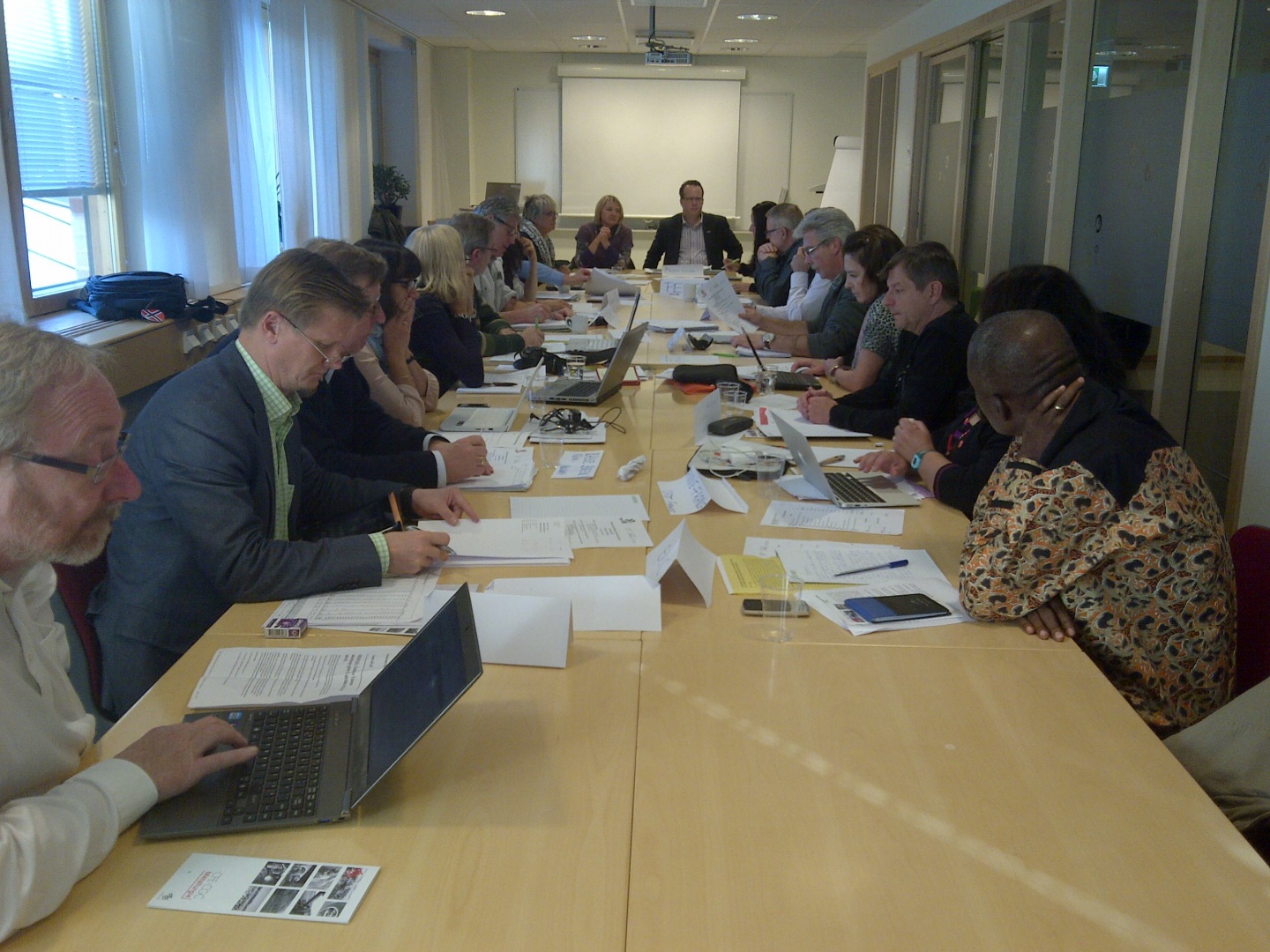15 June, 2012The non-manual working group was held on 25 October 2012 at Unionen office in Stockholm and attended by participants from Belgium, Denmark, Finland, France, Germany, Ghana, Norway, Spain and Sweden.
The meeting was preceded by the special working party for white-collar workers convened by IndustriALL-Europe. IndustriALL Global Union’s meeting was chaired by Martin Linder, 2nd vice-president of Unionen and chair of the non-manual section, assisted by Anne-Cathérine Cudennec from the French CFC-CGC, vice-chair of the non-manual group.
Since it was the section’s first meeting in IndustriALL, the main purpose of the meeting was to get acquainted, which is why the participants all had prepared presentations about their work. Some salient points were common to all the reports. Some of the highlights were as follows:
- Most workers at BMW and Daimler are non-manual workers.
- Some products and lines will not be carried out because the companies will not have the necessary staff readily available.
- There is a steep rise in professional and managerial staff in all areas.
- This new type of worker has a new culture and considers trade unions to be old-fashioned.
- There is an increase in precarious work, and in agency work in particular, as well as fixed-term contracts
- Crowdsourcing, a new form of outsourcing, will increase
- Non-manual workers suffer from overflowing time accounts, undocumented working hours, 24-hour availability, unrealistic time expectations and schedules, not enough people, overly ambitious targets
- Unions are challenged to increase the level of organization of white-collar workers.
- Strategies are emerging about how to already attract students at university.
- The persistent crisis in Europe also affects employment of non-manual workers.
- Competence development and capacity building are important for white-collar unions, especially in light of the never-ending crisis and the possible need to change jobs.
A highlight was the report presented by Eric Kwabena Gyima from the Ghana Mineworkers’ Union. Traditionally the membership of Ghana Mineworkers’ Union was blue-collar until 2007 when the union started to reach out to non-manual workers. Mining companies and contracting companies have non-manual workers. In the meantime they make up 11 per cent of the total membership. There is senior staff, geologists, engineers, accountants and health workers, but not all are members of the union. The challenge is still to integrate them into the overall membership.
One other challenge is the fact that most mines are owned by foreigners, which means that the blue-collar workers see non-manual workers as being supervisors who subject them to inhumane conditions. That is why we need to work to educate people to break down barriers. There has, however, been some improvement. There still exist salary inequalities between non-manual workers and expats. Companies must pay for skills and not color. Unfortunately there is a skills flight, and a lot of good and well educated people have left. We also do HIV/AIDS training both for blue and white-collar workers.
Precarious work is also an issue in Ghana, albeit mostly in small-scale mines. Work is contracted out to Sandvik and Atlas Copco. The union has managed to organize some workers among the mining contractors.
Good practices were related in successes in organizing non-manual workers by other unions too. Unionen has more than 500,000 members and is growing. It is the largest union in the private sector. It does very active PR work and even advertises on tv. Non-manual workers are the second largest growth group in IG Metall, making up 22 percent of new members in 2012. IDA in Denmark is also working hard on recruitment. They have 86,000 members and are growing.
The following priorities were identified for 2012:
- Make non-manual workers more visible in all sectors of IndustriALL
- Focus on ICT sector
- Broaden and intensify cooperation with IndustriALL Europe
- Contemplate a workshop for a wider audience in the next 1 or 2 years, for example on the theme of Office in Your Pocket
- Concentrate on working time, stress, work-life balance
- Do research on women engineers
- Continue cooperation with UNI Global Union, for example in connection with the IBM Global Alliance
- Arrange an international exchange of experience on recruiting students
- Integrate non-manual workers into global framework agreements
- Make the most of the web
A small coordinating group was agreed made up of Unionen, CFC-CGC and IndustriALL to start with. Once this gets going, then more unions will be contacted to join the coordination group, for instance by means of skype.


